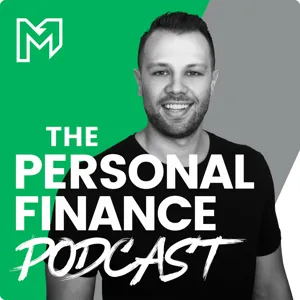Podcast Summary
Warren Buffett's Bet Against Hedge Funds: Buffett's bet on index funds vs hedge funds showcased the debate between active and passive investing, emphasizing the importance of understanding risk-reward trade-offs and the potential value of low-cost index funds.
Warren Buffett, a legendary investor, made a bet against hedge funds in 2008, wagering that a simple investment strategy using an index fund would outperform a portfolio of hedge funds over a 10-year period. Buffett's bet, which involved $1,000,000, highlighted the debate between active investing and passive index fund strategies. The episode discussed the importance of understanding the principles of investing, including the trade-off between risk and reward, and the potential value of simple, low-cost investment strategies. The story also emphasized the significance of Buffett's confidence in the power of index funds and the skepticism of hedge fund managers.
Warren Buffett's Bet on Index Fund vs Hedge Funds: Warren Buffett's wager against hedge funds showed that index funds, which mimic market performance and have lower fees, often outperform actively managed funds.
Warren Buffett, in his famous wager against a group of hedge funds, bet on an index fund, a simple investment strategy created by John C. Bogle in 1976. Bogle, known for his frugality and love for ships, founded Vanguard and introduced the first index fund based on the idea that professional investors, on average, do not outperform the market. After reading an article by economist Paul Samuelson, who argued that most portfolio decision-makers should go out of business, Bogle decided to investigate and found that investment funds underperformed the market when fees were taken into account. The index fund, which aims to mimic the performance of a specific market index, has since become a popular investment option due to its simplicity and lower fees. This discussion highlights the importance of considering the overall market performance and fees when making investment decisions.
The First Index Fund by Jack Bogle in 1976: Jack Bogle introduced the first index fund, investing in all 500 largest US companies, initially met with skepticism but gained popularity due to low fees, diversification, and consistent performance.
Jack Bogle, the founder of Vanguard, created the first index fund in 1976 as a simple investment solution for individual investors. Instead of actively picking stocks, the index fund aimed to track the performance of the S&P 500 index by investing in all 500 largest companies in the US stock market. However, the idea was initially met with skepticism and resistance from both investors and the investment industry, who saw it as an inferior and "un-American" option. Despite the initial setbacks, Bogle persisted, and index funds eventually gained popularity due to their low fees, diversification benefits, and consistent performance. Today, index funds have become a cornerstone of many investment portfolios and a powerful tool for average investors to build wealth over the long term.
The Debate Between Active and Index Funds: Warren Buffett's bet against actively managed funds highlights the ongoing debate in investing about the merits of low-cost index funds versus actively managed funds with higher fees. Buffett's belief is that most actively managed funds underperform the market, while proponents argue for the expertise and potential outperformance of active managers.
The debate between actively managed funds and index funds in investing continues. Index funds, which aim to mimic the performance of a specific market index, have gained popularity due to their low fees and consistent performance. Warren Buffett, a well-known investor, famously bet $500,000 against a hedge fund manager, Ted Seides, that an S&P 500 index fund would outperform a group of actively managed funds over a ten-year period. Buffett's bet reflected his belief that the majority of actively managed funds underperform the market due to high fees and the difficulty of consistently beating the market. Seides, on the other hand, believed that his team's expertise could deliver better returns. The story highlights the ongoing debate in the investment world about the merits of actively managed funds versus index funds and the importance of understanding the underlying costs and potential benefits of each approach.
Warren Buffett vs. Ted Seides: The Hedge Fund vs. Index Fund Bet: Despite the belief in hedge fund managers' abilities, data shows most cannot consistently beat the market. Buffett's success is due to more than just luck.
The debate between active investing in hedge funds versus passive investing in index funds was put to the test in a high-stakes bet between Warren Buffett and Ted Seides. Buffett believed that an index fund would outperform a collection of hedge funds over a ten-year period. Despite the Saudis and Seides' belief in the abilities of hedge fund managers, data shows that most stock pickers cannot consistently beat the market. Buffett's reputation as a successful investor is not just due to luck but also his temperament, discipline, and insight. The first year of the bet saw the hedge funds outperforming, but the index fund eventually came out on top for the rest of the decade. The eternal question in investing remains: do successful investors have a unique skill set, or is it a matter of luck?
Index funds outperform hedge funds: From 2008 to 2017, index funds returned 66%, while hedge funds managed only 22%. Ordinary investors should consider index funds for their proven long-term performance and lower costs.
Index funds, which are simple investment vehicles that track a market index, have outperformed hedge funds, which are more complex and actively managed investment vehicles, over a significant period of time. According to the discussion, from 2008 to 2017, the S&P 500 index was up 66%, while hedge funds only managed 22% returns. This large gap highlights the challenge of consistently beating the market through active management. The speaker, Ted Seaidi, expressed his disappointment in losing a bet against Warren Buffett, who advocates for index funds, but still believes he made the right bet due to the historical odds being in his favor. Despite the allure of trying to pick the next Warren Buffett or beat the market, the advice for ordinary investors is to consider investing in index funds due to their proven long-term performance and lower costs.
Spread your money across various investments for risk mitigation: Diversification allows investors to benefit from different types of investments during various economic conditions, reducing risk and potentially increasing returns
That diversification is a key strategy for investing. By spreading your money across various investments, you can mitigate the risk of losing significant amounts of money if one particular investment performs poorly. The concept of diversification is based on the idea that different types of investments will perform well at different times. For instance, when the economy is struggling, companies like U-Haul that offer moving services might thrive, while tech companies like Tesla might struggle. By having a diversified portfolio, you can benefit from the growth of different types of investments during various economic conditions. Diversification allows investors to achieve a higher return with less risk, which is a unique exception to the general rule that higher returns come with greater risk. Over the past 50 years, the ability to have professionals manage large portfolios and more recently, the availability of computers to buy every company in the world, has made diversification an increasingly popular and accessible investment strategy.
Stock Picking vs Index Funds: Individual stock picking is risky and difficult to outperform the market. Diversification through index funds reduces risk and ensures exposure to high-performing companies.
Individual stock picking is a risky endeavor due to the unpredictability of the market and the economy. The efficient market hypothesis suggests that all available information is already reflected in stock prices, making it difficult to outperform the market. Furthermore, most individual stocks underperform the overall market. Therefore, investing in an index fund, which guarantees exposure to a diversified pool of stocks, is a more effective risk-reward trade-off for investors. This strategy ensures that you'll own a piece of the high-performing companies without having to guess which ones they'll be. Diversification is the key to reducing risk, as you don't have to pick the outperformers yourself. Even professional investors, who make a living from stock picking, struggle to consistently beat the market.
The majority of active investors underperformed the stock market in the last decade: For most investors, passive investing through index funds is the most effective and efficient strategy for achieving long-term financial goals.
While some active investors have outperformed the stock market in the last decade, the majority have not, and it's unlikely that the same investors will continue to outperform in the next decade. Therefore, for regular investors who are not well-compensated professionals, investing in index funds is a more effective and efficient strategy. This is because index funds allow investors to spread their investments across the entire market, reducing risk through diversification. Additionally, the efficient market hypothesis suggests that it's difficult to consistently beat the market through individual stock picking. However, actively investing in individual stocks can be a fun and engaging way to learn about specific industries or companies, as long as it's done in moderation and with an understanding of the risks involved. Overall, the key takeaway is that for most investors, passive investing through index funds is the best approach for achieving long-term financial goals.
The Importance of Adaptability in Business: Embrace the unexpected, adapt quickly, and leverage forward-thinking solutions for business success. Value diverse perspectives and experiences, and learn at your own pace with flexible resources.
Learning from this episode of Planet Money is the importance of adaptability in business, especially when faced with unexpected events. Using the example of a solar flare adding an extra hour to each day, the episode highlights how businesses can benefit from forward-thinking solutions, like those offered by ADP. Additionally, the episode emphasizes the value of diverse perspectives and experiences, as showcased in NPR's Black Stories Black Truths collection. Finally, the episode encourages individuals to embrace their unique identities and learn at their own pace, with resources like Capella University's FlexPath learning format. Overall, the episode underscores the importance of being prepared for the unexpected and valuing the richness of diverse experiences.





